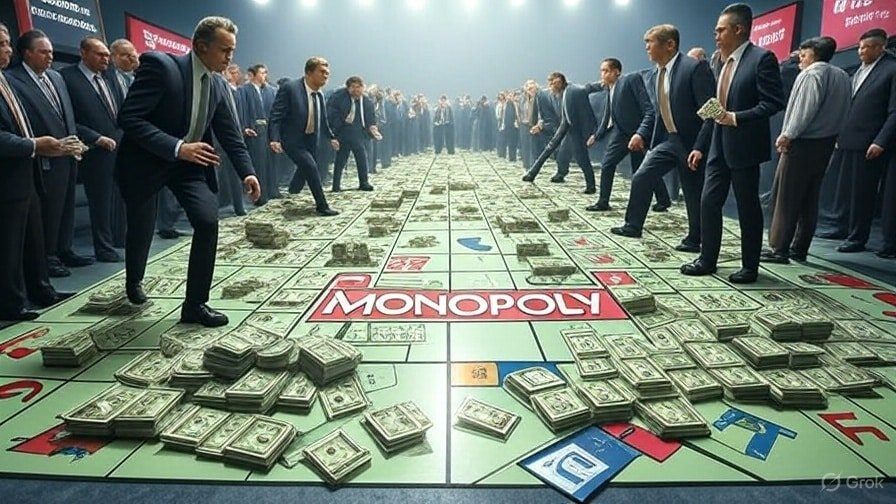Neoliberalism Explained – Profit Above All Else
Neoliberalism is the system that promised freedom but delivered control. Since the 1980s, politicians and economists have sold us the idea that markets should rule everything — governments should shrink, regulations should vanish, and individuals should be “free” to choose.
In practice, neoliberalism handed power to corporations, financial markets, and the super-rich. It created fragile economies, hollowed-out communities, and a culture where profit comes first, people second.
It pretends to liberate you. In reality, it owns you.
Table of contents
What Is Neoliberalism?
At its core, neoliberalism is the belief that markets solve problems better than governments. It calls for:
- Deregulation (cutting rules for business).
- Privatisation (selling off public assets).
- Austerity (shrinking public spending).
- Globalisation (opening borders for capital, not necessarily people).
The sales pitch? Efficiency and freedom. The result? Monopolies, inequality, and less freedom for anyone without wealth.
The 1980s Revolution
Neoliberalism exploded under leaders like Ronald Reagan and Margaret Thatcher. They promised to “get government out of the way.” In reality, they replaced public institutions with corporate power.
- State industries were sold off.
- Finance was deregulated.
- Trade unions were crushed.
The winners were big business and financial elites. The losers were ordinary workers and the public services they relied on.
Freedom as a Sales Pitch
Neoliberalism talks endlessly about freedom. You’re “free to choose” your school, your healthcare provider, your pension plan. But freedom without money is meaningless.
If you can’t afford the private school, the “choice” doesn’t exist. If you can’t pay for healthcare, you’re not free — you’re trapped. Neoliberalism sells freedom while building cages of debt, insecurity, and dependency.
Crisis as Normality
Neoliberalism doesn’t just cause inequality — it fuels crises:
- 1990s financial crashes in Asia and Latin America.
- 2008 global meltdown, triggered by deregulated banks.
- Permanent austerity, sold as “responsibility.”
Each crisis made ordinary people poorer while governments bailed out corporations. Risk is privatised in good times and socialised in bad times.
Why It Endures
If neoliberalism is so harmful, why does it survive? Because it benefits those with the most power.
- Corporations profit from deregulation and privatisation.
- Politicians gain donations and post-office jobs in the private sector.
- Media owned by billionaires sells the idea as common sense.
The system endures because it works perfectly — for the elites who designed it.
Neoliberalism and Woke Politics
By the 2010s, neoliberalism had a problem: growing anger over inequality. Enter woke politics.
Instead of addressing class issues, debates shifted to identity, diversity, and culture wars. Corporations happily embraced this new language. It made them look progressive without threatening their profits.
Neoliberalism and woke politics are two sides of the same coin: one manages the economy for elites, the other manages the culture to distract the rest.
Conclusion
Neoliberalism promised prosperity, efficiency, and freedom. What it delivered was insecurity, inequality, and monopoly power. It pretends to free you while quietly owning you — through debt, dependence, and endless crises.
Until we put people above profit, neoliberalism will keep running the show.
Read more: Why Neoliberalism Hollowed Out Society – Opinion & The Fear Machine of Neoliberalism – Opinion
FAQ Section
What is neoliberalism?
It’s an economic system that prioritises deregulation, privatisation, and markets over government, sold as freedom but serving corporate interests.
When did neoliberalism rise?
It took off in the 1980s under Reagan and Thatcher, spreading globally through privatisation, deregulation, and austerity.
Why is neoliberalism criticised?
Because it increases inequality, weakens public services, fuels financial crises, and concentrates wealth in the hands of elites.
How does neoliberalism link to woke politics?
Woke culture distracts from class inequality, allowing neoliberal elites to maintain economic control while looking progressive.



